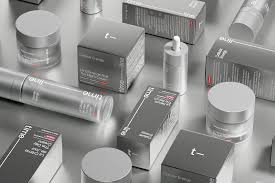
Autophagy and Antiaging Skin Care Ingredients: Unlocking Youthful Skin
Aging skin is a complex process influenced by many factors. One exciting discovery in recent years is autophagy, a natural cellular cleanup process that plays a key role in slowing skin aging.
New skincare products now aim to boost autophagy to rejuvenate your skin.
What Is Autophagy and Why Does It Matter for Skin?
Autophagy is a cellular process often described as “self-eating.” It’s how cells break down and recycle old, damaged parts like organelles and proteins.
This cleanup helps cells function better and survive longer.
As we age, autophagy slows down, leading to the buildup of damaged components inside skin cells. This accumulation contributes to the visible signs of aging, such as wrinkles, sagging, and dullness.
In skin, autophagy removes senescent cells—those aged, dysfunctional cells that no longer divide but secrete inflammatory substances that accelerate aging.
The Science Behind Autophagy in Skin Aging
Autophagy occurs when lysosomes fuse with cellular organelles and digest them. This process recycles building blocks that cells can reuse.
Autophagy regulates the metabolism of the extracellular matrix (ECM), which provides skin structure. It controls enzymes called matrix metalloproteinases (MMPs) that break down collagen.
When autophagy is blocked or decreased, MMPs increase, accelerating collagen breakdown and skin aging. Growth factors like TGF-β regulate autophagy, influencing skin health.
Interestingly, autophagy follows a circadian rhythm, meaning it cycles naturally throughout the day and night. This timing is important for skin repair and regeneration.
Mitochondria and Autophagy: The Powerhouse Connection
Mitochondria, the energy producers of cells, need their own cleanup via autophagy, called mitophagy. Old or damaged mitochondria produce harmful free radicals that damage skin cells and accelerate aging.
Boosting mitophagy helps remove these damaged mitochondria, reducing oxidative stress and slowing skin aging.
Studies in animals like flies, worms, and mice show that increasing autophagy can delay aging and extend lifespan.
Certain compounds like lithium and trehalose have been shown to induce autophagy in mitochondria, improving cellular health and longevity in animal studies.
Sirtuins, Caloric Restriction, and Autophagy
Sirtuin-1 (SIRT-1) is a protein linked to longevity and health. It activates autophagy and is one of the reasons caloric restriction improves lifespan.
SIRT-1 activation can be stimulated by compounds such as resveratrol, found in grapes and red wine, and melatonin, a hormone regulating sleep.
Both resveratrol and melatonin are being studied as skincare ingredients for their ability to increase autophagy and protect skin from aging.
How Autophagy Supports Healthy Skin Cells
Autophagy is active in skin cells like keratinocytes (the main cells in the outer skin layer). It helps:
Remove oxidized, damaged molecules
Promote DNA repair via nucleotide excision
Remove lipofuscin, a pigment that accumulates with age and causes skin to look dull
Young skin cells have robust autophagy, while older skin cells show decreased activity, leading to cell aging or senescence.
Senescent cells stop dividing and release harmful inflammatory signals that degrade skin quality and accelerate wrinkles and sagging.
Autophagy and Skin Pigmentation
Decreased autophagy also affects pigmentation disorders like melasma. This happens because autophagy helps degrade melanosomes—structures that carry pigment in skin cells.
When autophagy slows, melanosomes accumulate in keratinocytes, increasing skin pigmentation and causing uneven skin tone.
Increasing autophagy could potentially help regulate pigmentation and reduce hyperpigmentation disorders.
Autophagy and Diet: How What You Eat Affects Skin Aging
Autophagy is naturally induced by nutrient starvation, oxidative stress, and infection. It’s controlled by protein kinases like unc-51 like kinase complex and phosphatidylinositol 3-kinase complex.
The most proven way to boost autophagy systemically is through intermittent fasting and caloric restriction.
These dietary strategies promote longevity and healthier skin by encouraging your cells to clean out damaged parts more efficiently.
Key Skincare Ingredients That Boost Autophagy
Scientists and dermatologists are developing skincare products that target autophagy to reverse signs of aging.
Here are some promising ingredients known to increase autophagy in skin cells:
Crepidiastrum Denticulatum Extract: A plant extract shown to stimulate autophagy and improve skin renewal.
Exosomes: Tiny vesicles that carry signaling molecules, potentially activating autophagy in skin cells.
Heptasodium Hexacarboxymethyl Dipeptide-12 (Aquatide™): A patented ingredient designed to boost autophagy and protect skin from stress.
Melatonin: Besides regulating sleep, it activates SIRT-1 and promotes autophagy in skin.
Resveratrol: A powerful antioxidant that activates SIRT-1 and stimulates autophagy, protecting against UV damage.
Saururus Chinensis: A botanical extract that has shown anti-aging effects through autophagy stimulation.
Personalized Skincare: Knowing Your Baumann Skin Type®
Not all antiaging ingredients work the same for everyone. Your Baumann Skin Type® determines how your skin reacts to specific ingredients.
Taking a skin care quiz to discover your skin type is a smart first step.
Dermatologists can then recommend a personalized skincare routine that may include autophagy-enhancing ingredients tailored to your skin’s needs.
Current and Future Skin Care Products Targeting Autophagy
Several innovative products now contain autophagy-boosting ingredients aimed at reducing senescent cells and promoting youthful skin.
These products often combine antioxidants, peptides, and botanical extracts designed to:
Clear damaged organelles
Stimulate cellular recycling
Support collagen production
Protect skin from environmental stress
As research grows, expect more formulations targeting autophagy as a cornerstone of antiaging skin care.
Summary: Why Autophagy Matters for Skin Health
Autophagy slows with age, leading to accumulation of damaged components and skin aging.
Boosting autophagy helps remove senescent cells, damaged organelles, and supports skin repair.
Key ingredients like melatonin, resveratrol, and novel peptides can stimulate autophagy.
Lifestyle factors like intermittent fasting also promote autophagy and skin health.
Personalized skincare based on your skin type can optimize antiaging results.
Want to Learn More or Find Your Skin Type?
Take our comprehensive skincare quiz to discover your Baumann Skin Type®. Get tailored advice on the best ingredients, including autophagy enhancers, for your skin.
If you’d like, I can help format this article for blog publication or create a downloadable version. Just let me know!
Understanding autophagy gives you deeper insight into effective and sustainable skincare. Incorporating autophagy-boosting ingredients into your routine can noticeably slow the aging process. Additionally, maintaining a healthy lifestyle with a balanced diet supports this vital cellular process.
Patience and consistency are key, as skin regeneration and rejuvenation take time.
Finally, consulting with a skincare professional ensures you choose products that best suit your skin’s unique needs and conditions.


